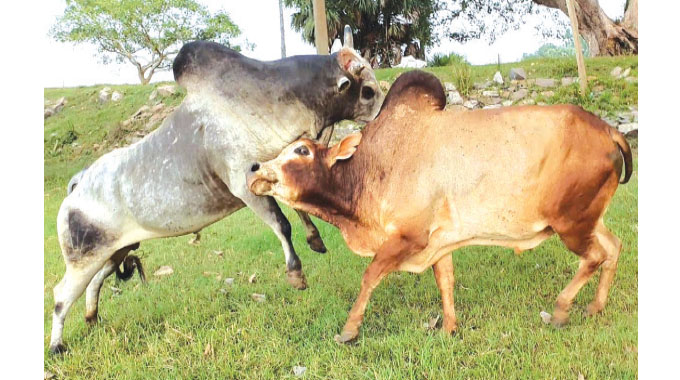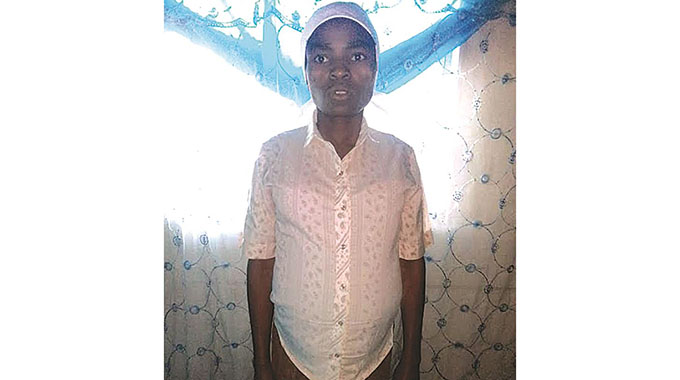When pasture fights earn one the sobriquet

Isdore Guvamombe
Saturday Lounge Reflections
At a farm on the fringes of the proverbial land of milk honey and dust, after two days of cloudless skies, the sun sucked moisture from mother earth leaving the earth in mirages.
Grandfather’s farm, Mr Obedience Philemon Masakara’s farm, was teeming with people engaged in a multifarious array of chores.
Driven by the ancient rhythm of life to survive, each brain pre-occupied itself with work to make the farm prosper.
Grass-thatched huts tottered with age, their mud-and-pole walls leaning backwards, with little doors that looked like the mouth of a fool.
The thatch was dark brown with age, weather and soot from fires forever lit inside.
The roofs are uncharacteristically high and the eaves did not obscure the doorways. The roofs were supported by several large, smooth wooden poles evenly distributed around the perimeter, itself the fecund of deforestation.
A spitting distance away twisted like a serpent, demarcating the communal lands to the north with the Nyakapupu communal lands to the south. Mupinge river’s riverine vegetation provided a perfect theatre of the jungle.
Here, at dawn as the first shafts of sun coloured the fluffy grass heads rippling across the savannah plains in a russet hue, you could be lucky to see ghostly figures of painted dogs, lions and other predators.
With the rising of the sun you can see irregular, mottled coats which feature patches of red, black, brown, white and yellow fur.
On close inspection, each animal had its own unique coat pattern and all have big, round ears or huge mane.
This day, under the blistering mid-morning heat, I set off herding cattle towards the bend on Mupinge River — aptly named Gonyo, the Korekore dialect for a bend.
Korekore is the dominant dialect in the proverbial land of milk, honey and dust or Guruve.
My bare feet and legs caked with knee-high cow dung paste, acquired from entering the kraal to drive out cattle, themselves the beasts that endured long nights in knee high dung and mud paste.
It was towards the end of the rainy season and the kraal was a spectacular rut of cow dung paste. White worms and maggots frolicked in the paste, but they never harmed this villager. Flies hovered and somersaulted, unabated.
Gonyo was sacred and scary grazing pasture but I had to herd cattle.
Like any boy of his age, this villager had a catapult round his neck and a small axe in one hand. Three dogs followed and were handy security.
The cattle were fat and looking good. The riverine was thick and at times lions were spotted there. But the belief was that they were not real lions but the spirit mediums that manifested themselves through the lions. Mhondoro!
They never ate cattle or humans unless you broke taboos.
Karitundundu, the ageless autochthon of wisdom and knowledge had set simple rules. Once you followed those and avoided breaking taboos, you were safe.
As this villager drove the cattle deeper and deeper into Gonyo, there was the timid smell of rapoko. Across the river were distant clanging bells from cattle.
The bell sound was different from that of our cattle. It was hard, to keep the eye on the cattle. If the villager lost one beast, that night hell would break loose.
Grandfather never wanted that kind of nonsense.
By the river the cattle suddenly mixed. The huge bulls sized each other up, sniffing at the behinds of the cows, mooing and spattering dung.
Small bulls, the teaser bulls, mooed, jumped and smashed bushes with their small horns. They fought anthills as mock enemies, spattered dung and spurred the big ones to fight. They were urging the two huge bulls to fight.
Alexio was herding the other cattle and typical of the mantra of that time, he wanted his bull to fight this villager’s bull. Both bulls were equally fit, stubborn and stout. Eventually the big fight started.
At some stage the horns seemed to have been used to breaking point. There was pushing and knocking on horns. It was a big fight.
Alexio cheered on as this villager’s bull looked cornered for a while. Somehow it recovered, rather miraculously and pushed harder, delivering a head butt, a horn, another head butt, a left horn, right horn … combination, left horn, right horn, then another combination and Alexio’s bull took to its heels. The fight was over. But I was not over for the owners.
Unbeknown to this villager, more boys from Alexio’s village had arrived. They equally enjoyed the bull fight, albeit from a distance. After the bull fight they closed in and started shouting.
“The bull fight is over what about the owners?” They turned to this villager, Your bull has won, but you will not win a fight against Alexio! Will you?”
Naturally there had been a grudge between grandfather on one side of the Mupinge River and Alexio’s father on the other.
Grandfather was by far known as a calm, composed, calculative and successful farmer. Alexio’s father was known as drunkard and lazy man who survived on stealing firewood from grandfather and selling to teachers at the school. By that token and by the bulls’ fight, there was a cause to fight for.
Takawira, the eldest of the boys from the village, was very fast in organising the fight.
Using his two hands he moulded two sets of breasts on the ground, from sand. “Iwe zamu ramai vako (your mother’s breast) and iwe zamu ramai vako.” (then your own mother’s breast also).
“Mothers’ breasts are sacred and life itself. No one tampers with them except babies and dad. Don’t ask me about dad, but whoever plays with your mother’s breast, has belittled you. Only idiots do that,” said Alexio inflaming the situation.
We used our feet to kick the mounds and the fight exploded. It is difficult to describe your own fight. But within moments, this villager had floored Alexio. How? Up to now the villager has no clue.
All this villager knows is throwing around punches and kicks with reckless abandon. Jabs, swings, uppercuts, swings, swings, jabs…jabs…jabs. Kneeing!
Alexio’s young brother joined in but Takwaria would have none of it. It was enough.
Up to today, this villager does not understand how he won that fight and earned himself the sobriquet,
The Warrior. It must have been a combination of luck and power.








Comments